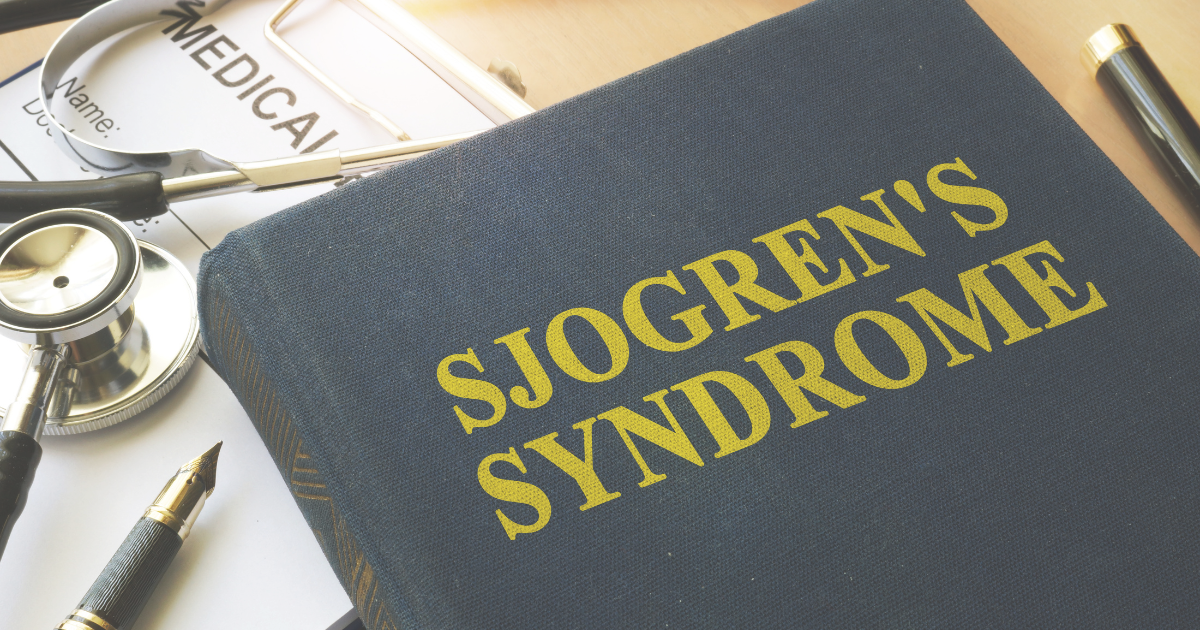Sjogren’s Syndrome is a chronic autoimmune condition where the immune system mistakenly attacks the body’s moisture-producing glands, mainly the salivary and tear glands. This leads to symptoms like dry mouth, dry eyes, fatigue, and joint pain. But one question that often arises is: “Is Sjogren’s Syndrome hereditary?” In this blog, we’ll explore whether genetics plays a role, what the latest research says, and what this means for patients and their families.
What Is Sjogren’s Syndrome?
Before diving into genetics, let’s briefly understand what Sjogren’s Syndrome is. It’s classified as an autoimmune disorder, where your immune system attacks healthy tissues. There are two types:
- Primary Sjogren’s Syndrome – Occurs alone, without any other autoimmune condition.
- Secondary Sjogren’s Syndrome – Occurs alongside another autoimmune disease, such as rheumatoid arthritis or lupus.
Sjögren’s affects millions worldwide, mostly women over the age of 40. However, men and younger individuals can also develop the condition.
Is Sjogren’s Syndrome Genetic?
The short answer is Sjogren’s Syndrome is not strictly hereditary, but genetics may influence your risk of developing it.
Unlike diseases caused by a single gene mutation (like cystic fibrosis or Huntington’s disease), Sjogren’s is a complex, multifactorial disease. That means a combination of genetics, environment, and immune system dysregulation contribute to its development.
Family History and Risk
Studies show that people with a family history of autoimmune diseases (like lupus, rheumatoid arthritis, or Sjogren’s) have a slightly higher risk of developing one themselves. However, this doesn’t guarantee that a child or sibling of someone with Sjogren’s will also get the disease.
Some research has identified certain HLA (Human Leukocyte Antigen) genes that may be associated with a higher risk of developing Sjögren’s. These genes help regulate the immune system. Variations in HLA-DR and HLA-DQ genes have been linked to autoimmune disorders, including Sjögren’s.
Environmental Triggers Matter Too
Even if someone carries a genetic predisposition, they might never develop Sjögren’s without an environmental trigger. These may include:
- Viral infections (like Epstein-Barr Virus)
- Hormonal changes
- Smoking or exposure to toxins
- Stress and other autoimmune conditions
This is why two people with similar genetic backgrounds may have very different health outcomes.
Can You Get Tested for Genetic Risk?
Currently, there is no specific genetic test to predict or diagnose Sjögren’s Syndrome. Diagnosis is based on a combination of:
- Clinical symptoms (dry eyes, dry mouth, fatigue)
- Blood tests for specific antibodies (like Anti-SSA/Ro and Anti-SSB/La)
- Eye tests (Schirmer’s test)
- Salivary gland biopsy
If you have a family history of autoimmune diseases and are experiencing symptoms, consult a rheumatologist early. Early diagnosis can improve long-term outcomes and reduce complications.
What If I Have Sjogren’s – Should My Family Be Concerned?
If you have Sjogren’s, your family members may have a slightly higher risk of developing autoimmune conditions, but it’s not a cause for panic. Encourage them to:
- Stay aware of any symptoms like chronic dry eyes or joint pain.
- Share family medical history with their doctors.
- Maintain a healthy lifestyle to support immune health.
Key Takeaways
- Sjogren’s Syndrome is not directly inherited, but genetics can play a role in increasing the risk.
- Having a family member with an autoimmune disease may slightly raise your risk.
- Environmental factors are equally important in triggering the disease.
- There is no genetic test to diagnose Sjogren’s, but early symptom recognition is crucial.
Final Thoughts
While Sjogren’s Syndrome may run in families, it’s not a classic hereditary disorder. A mix of genetic susceptibility and environmental triggers is usually behind it. If you or a loved one are showing symptoms, seeking medical advice from a rheumatologist can help with early detection and effective management.




